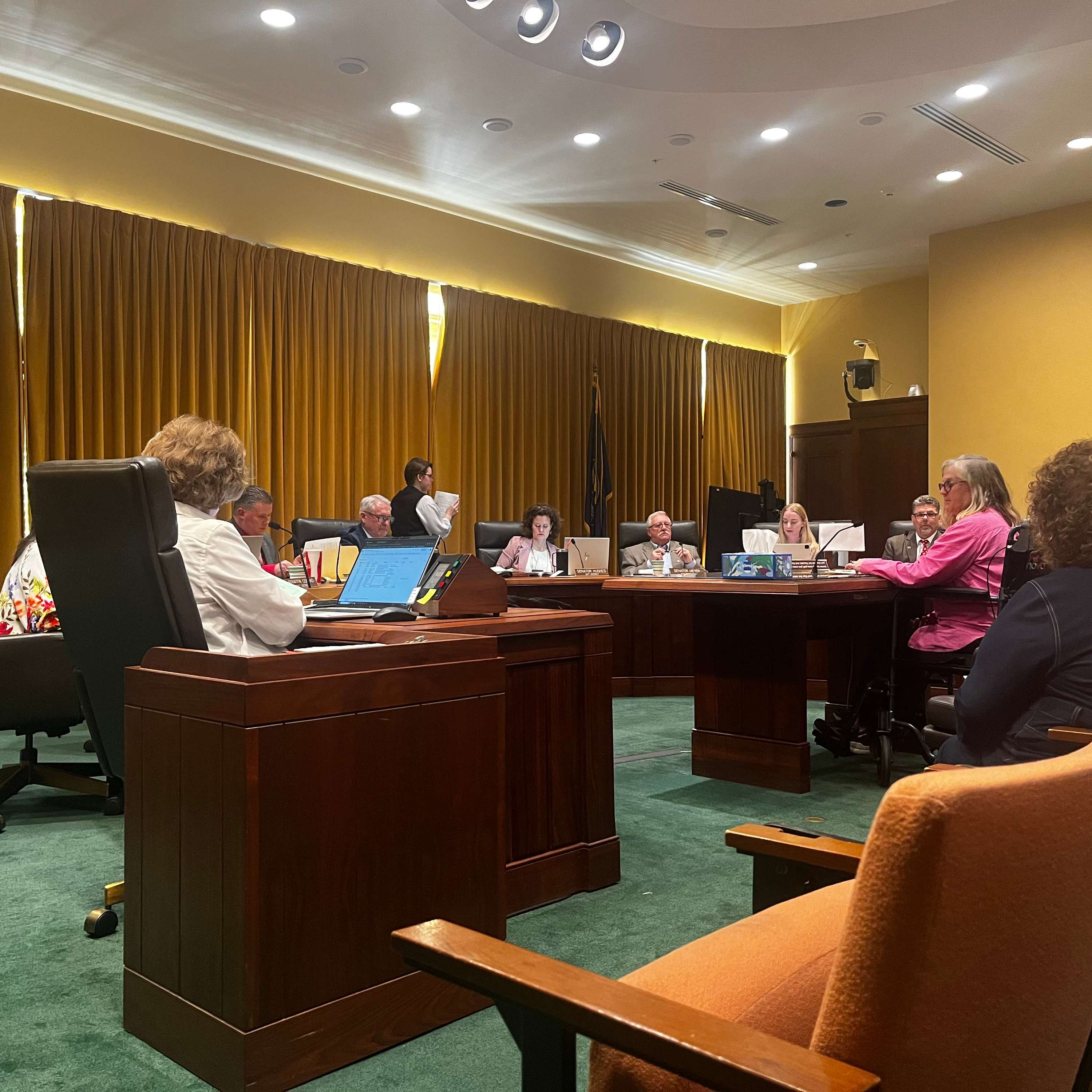Mar 12 2025 4 mins 1
Nebraska's teachers are suffering from burnout and increased stress levels. When unforeseen circumstances arise such as a parent getting sick or a personal medical emergency, they are either unable to take time off due to a lack of sick days or paid time off and can’t risk losing pay. LB440 would allow for teacher’s to take the time they need for six weeks by creating a state education leave fund that would reimburse them for their time off permitted under the family and medical leave act or FMLA. Teachers would pay 0.35% of their monthly pay, a roughly $20 investment, into the fund. The school districts would then match that contribution. State senator Ashleigh Spivey introduced the bill and gave an example of how the fund could be utilized during a committee hearing on Monday, March 10.
“So how it will work, say I have to be a caregiver for my mom who’s now in hospice. I can apply FMLA and under the law I have 12 weeks unpaid that protects me to have my job when I come back,” Spivey said. “This just says that the first six weeks because i’m teaching and i’ll need a long-term substitute, so it will cover my long-term substitute and ensure continuity in the classroom and then it would cover my first six weeks only for me to leave to go care for my mom that is in hospice,” she said.
Many current and former teachers testified in favor of the bill. Sydney Jensen is an English teacher at Lincoln High School. She experienced postpartum depression after the birth of her first child and only had eight weeks of sick and PTO leave saved up, so she had four more weeks of FMLA leave but it was unpaid.
“LB440 creates a sustainable solution to ensure educators can take necessary FMLA leave without depleting personal leave or facing financial hardship,” Jensen said. “This means new mothers would be able to stay home when their child is sick, stay home when they themselves are sick and take personal days when they are overtired or overwhelmed. Things I haven't done in my entire 12 year career as I've traded my leave time to be able to afford becoming a mom,” she said.
Jensen's story isn’t uncommon, several teacher’s testified and stated that they had to return to work early after giving birth. One teacher only had three weeks to stay at home and another was told that the only thing she could do was try to plan for a summer baby. Nora Lenz is a teacher with 30 years of experience in lincoln. When her parents grew old, she had to make the difficult choice of taking time off and losing income, or spending time with her family.
“I was with my father during the final four days of his life,” Lenz said. I held his hand as he took his last breath. But to this day, I regret not being there with him sooner before he was hospitalized. I truly believe that if I was able to take even a short leave from work, he might’ve lived longer. The family medical leave act could have eased the pain. Every day I carry the weight of abandoning my father… no one should pick between a paycheck and a family,” she said.
Kim Turnwall is recently retired and was a teacher in Seward for 34 years. She was left in a similar position, to care of her husband or keep an income.
“Brian could no longer stay at home by himself and needed full time care,” Turnwall said. “As his time here on earth was coming to a close, I should have taken care of him. He asked me to. I couldn't. I didn't have the days. And we couldn’t afford the cut into the only pay that our family had coming into our household,” she said.
Senator Spivey hopes that this bill can make it so that these difficult decisions don’t have to be made as often.
“Teachers are an integral part of our society,” Spivey said. “From educating our young people to adding to the workforce and economy and they can’t do that when they are human too and they have to make that decision, hard decision of what they have to prioritize and I think we saw that uplifted. That folks had to make really hard decisions that impacted them personally because they wanted to prioritize the children that they work with everyday. And this bill is starting to chip away at that and make it easier. have more harmony and them having their very important job that they’re present for but also their very important role within their family.”
There were no opponents to the bill, however, Senator Jana Hughes of Seward, a member of the education committee, brought up that school districts may be against paying their share into the bill and all teachers will have to pay into the program, there is no opt out. These are issues that could arise however, it will ultimately be up to the education committee to decide whether the bill moves forward.
